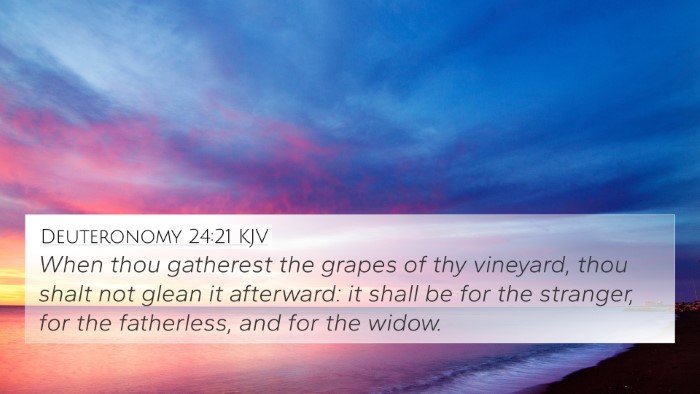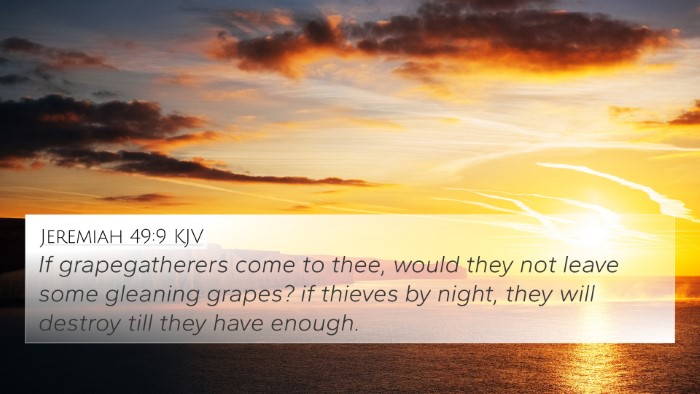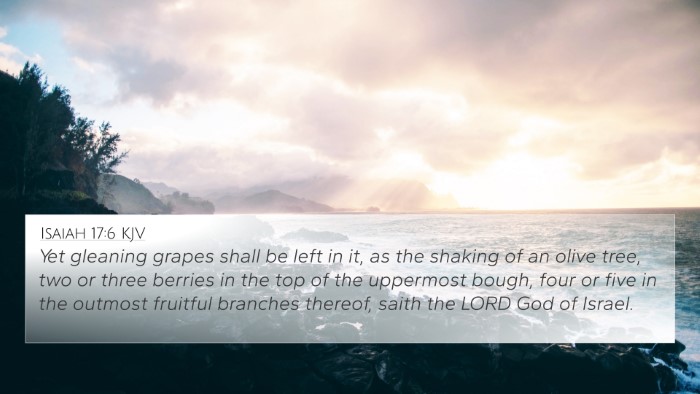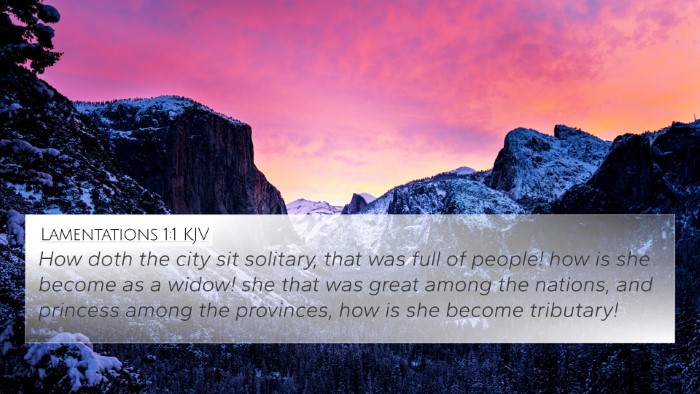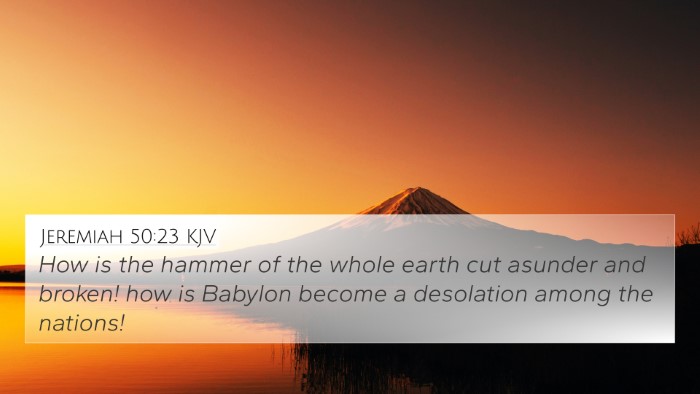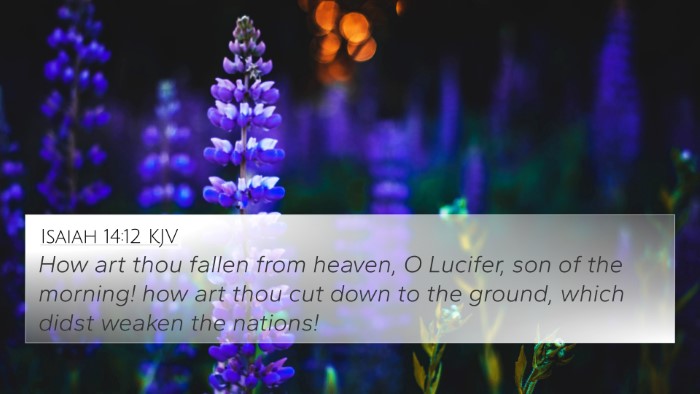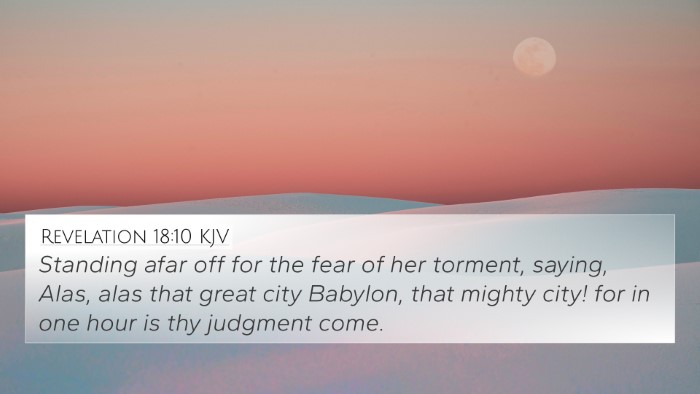Understanding Obadiah 1:5
Bible Verse: Obadiah 1:5 - "If thieves come to you, if robbers by night—Oh, how you will be cut off!—Would they not have stolen until they had enough? If grape-gatherers came to you, would they not leave some gleaning?"
Meaning and Insights
This verse from Obadiah conveys a powerful message regarding judgment and the certainty of divine retribution. It uses metaphors of theft and gathering to illustrate the complete devastation that awaits the nation of Edom for their arrogance and betrayal against Israel.
Commentary Insights
-
Matthew Henry:
Henry emphasizes that the verse highlights the nature of judgment from God. A thief may take only what he needs, leaving some behind; however, God's judgment will be total and ruthless, leaving nothing remaining for Edom. The lack of mercy in their desolation points to the severe consequences of their actions against the people of God.
-
Albert Barnes:
Barnes notes that the analogy of thieves and grape-gatherers serves to stress the point that while human sinners may show some restraint or mercy, divine justice knows no such bounds. Edom's impending doom will be complete, leaving no survivors, unlike the partial plundering that one might expect from thieves.
-
Adam Clarke:
Clarke expands on the imagery by suggesting that this verse serves as a watercolor painting of God's justice. He mentions that Edom’s actions against Israel were premeditated; thus, their punishment will reflect a seriousness that matches the severity of their sin. Clarke echoes the sentiment that total destruction is a testimony against Edom’s arrogance and disloyalty.
Cross-References
Obadiah 1:5 can be cross-referenced with the following Bible verses, which also discuss themes of judgment, retribution, and the fate of nations:
- Jeremiah 49:7-22: Discusses the judgment upon Edom and the reasons for their downfall.
- Ezekiel 35:3-4: Prophecies against Mount Seir, reflecting God's impending judgment on Edom's pride.
- Amos 1:11-12: The prophetic pronouncement against Edom for their harsh actions against Israel.
- Psalm 137:7: A lament over the Edomites’ cruelty towards Jerusalem, calling for judgment.
- Isaiah 34:5-6: A vivid portrayal of God’s vengeance and punishment against nations that oppose Him.
- Numbers 24:18: A prophecy regarding Edom’s fall and its significance in the trajectory of Israel's history.
- Micah 7:16-17: Prophecies concerning the fate of nations and recognition of God’s sovereignty in judgment.
Thematic Connections
The themes found within Obadiah 1:5 are echoed throughout the Scriptures, linking this verse with broader Biblical narratives of justice and divine sovereignty. The severe implications of violence and betrayal set the stage for a larger understanding of God's justice:
- Judgment: God's judgement is certain and complete, shown in verses like Revelation 20:11-15, where ultimate justice is meted out.
- Retribution: The idea that those who act against God's people will face consequences resonates in Galatians 6:7, emphasizing that one reaps what one sows.
- Pride and Destruction: Edom's pride parallels the warning found in Proverbs 16:18 that pride precedes destruction.
Conclusion
Obadiah 1:5 serves as a reminder of the seriousness of divine justice. By exploring the insights from revered biblical commentators and cross-referencing with related scriptures, one can gain a deeper understanding of the consequences of sin and pride in the context of God's overarching plan for justice. This verse invites reflection on God's unwavering commitment to righteousness, both in the past and in contemporary relevance.
Further Study Tools
For deeper exploration of connections between Bible verses, consider using:
- Bible concordance: A comprehensive resource for finding terms and related verses.
- Bible cross-reference guide: A tool to explore interconnections between scriptures.
- Cross-reference Bible study methods: Effective approaches to understanding biblical themes through scriptural dialogues.



